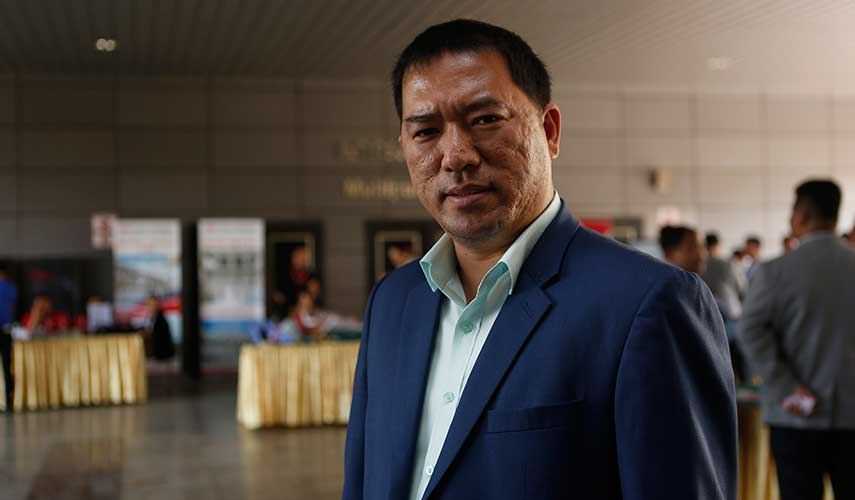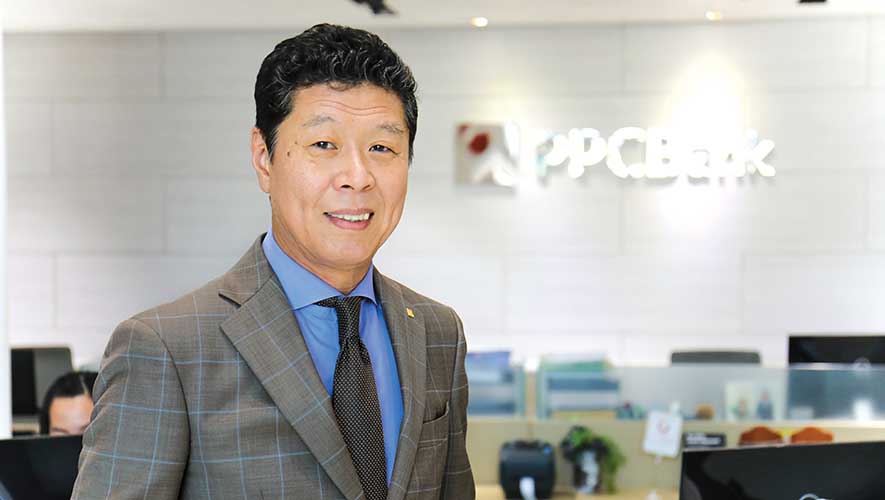Calls for more controls on developers also acting as loan arrangers
For the latest Cambodian Business news, visit Khmer Times Business
Real estate industry insiders want the central bank and the Ministry of Economy and Finance to set up policies and strengthen the law on residential project developers who act as financial institutions to provide housing loans to the customers without assessing their ability to repay them.
They say that because competition is tough in the real estate market in the Kingdom and the market is limited, some developers allow potential buyers to make installment payments on properties, especially houses, directly with the developers without asking for a down payment.
They are also offering discounts to attract customers to purchase their projects.
The fear is these strategies could hurt customers who lack financial literacy and don’t understand the obligations of repayment or the consequences of failing to meet them.
In some cases homes are repossessed and buyers lose a lot of money.
Po Eav Kong, chief executive officer (CEO) of Advance Real Estate, says that when people buy a house in a borey residential project by paying in installment to the developers, the interest rate can be higher compared with what banks and microfinance institutions offer.
He adds that the interest rate with Borey developers is from 10 percent to 20 percent per annum. However, if the customers get a home loan from a bank, the interest rate can be between 6 to 8 percent or, in some circumstances, 10 percent at most.
“If a customer buys a house and uses the home loan from the borey, the borey developers will not know his or her financial position and therefore cannot judge an ability to pay the loan back or not,” Po says. He adds that buyers don’t always read the small print regarding borey repayents and may not spot unreasonable terms and conditions.
Po adds that some countries set legally binding laws preventing real estate agents, developers and lenders from operating in consort. Cambodia does not. He wants more transparency regarding the process in the Kingdom.
Real estate investor, finance and investment specialist Ngeth Chou agrees all too often developers who also operate as lenders do not investigate potential customers’ backgrounds or have the skills or manpower to do so.
Ngeth, who is also a former senior consultant ant Emerging Markets Consulting (EMC), is concerned about lack of financial literacy in a country where around only 50 percent of the 16 million population has access to at least one financial service: either a bank account or borrowing account, an insurance account or an electronic wallet (e-wallet) account. For the past 20 years, the central bank, National Bank of Cambodia (NBC), has been leading the effort in bringing the financial services to remote areas.
Experts estimate the formal financial inclusion rate in Cambodia is 59 percent, with more than a third of the population using informal services or services such as unregistered lenders or saving clubs. At least 29 percent use neither formal nor informal financial services and are thus financially excluded. Within the formal financial sector, just 17 percent of adults use banks, while 24 percent use the services of microfinance institutions (MFIs).
“Because it is so easy to borrow, some customers can buy one or two houses. Therefore there could be a housing bubble,” he said. “Some customers expect that when they buy a house they can sell it on at a profit or make money renting it out. But, if that expectation is not met, the customer may suffer a problem with financial flow. He or she may then put the property up for auction, which has an impact on the market as a whole,” he said. “The best way is that customers should not use housing loans from developers because they do not study the financial ability of their customers. However, the bank will study financial incomings and outgoings, make a judgment on loan risk as well as offering lower interest rates,” he says.
“If the banks approve the housing loan, it means that the quality of the borey developers, the location, the legacy of the developers and the nature of the borey development project is taken into consideration,” he said. “Some developers are not financial institutions: They are builders, so they have no authority to check on a customer’s financial health.
“The instalments with the developers present a very high risk to economic stability because currently there is no proper check on the transaction with the developers. If there is no check from an authority, risk is increased. It is not a small issue because Borey developers build a lot of houses, so if there is a crisis it will affect the entire economy.”
Kim Heang, founder of Khmer Real Estate Co, and regional operating principal of KW Cambodia, agrees that customers should not take housing loans from residential project developers.
“If I am a banker or financial regulator, I will not allow real estate developers to accept installment payments or play the role of a bank to provide a housing loan. Developers should not do that. Only banks should set installments or decide on housing loans,” Kim adds.
“I do not support developers building houses and creating their own installment services. They should work with banks. They have to ask customers to hand over a down payment of 30 percent and then ask the customers to work with a bank,” he says.
“Now, most borey projects run installment plans of their own,” he says, adding it is wrong.
He said that the global economic crisis that started in 2007 in the US economy developed from this strategy – bad loans being sold on. The risk is that if the customers have a 3 to 5 percent down payment, they will accept it without studying the possibility of repayment. However, through the bank, they will study the possibility of repayment.
The NBC says in its Macroeconomic and Banking sector update 2019 and outlook for 2020 that the credit growth in the banking sector has been recovering after it saw a fall for the past three years. The rise is stemming from the growth of people’s incomes, demand and the diversified financial services among the financial institutions.
The NBC adds that the recovery of credit growth is supported mainly by the growth in loans to real estate and construction, consumption and commerce. “Credit growth in 2019 was mostly overwhelmingly based on mortgage loans and to consumer product makers,” supporting economic growth.
The central bank, however, warned that if the consumers do not spend the loan for the right purpose, the rise in credit could be economically risky. The Credit Bureau Cambodia (CBC) says consumer loan balance by type as of September 2019 totalled of $7.65billion and, of those, mortgages absorbed 48.36 percent, credit cards 0.61 percent and personal finance just over 51 percent.
CBC says non-performance loans (NPL) for 30 days as of September 2019 on mortgages was only 0.57 percent, while personal or consumer loans were 1.75 percent and credit cards were 2.65 percent.

Kim says, however, credit growth on housing loans with the banking and finance sector would be good because they can record the transactions, loan defaults and supply and demand across the real estate sector.
“Therefore, for customers to use the bank for housing loans, the borrower tends not to default. When they pay installments via borey developers, the loan default is much higher because the developers do not study the possibility of payback or other vital details. Their customers consequently are high risk. I urge customers not to pay the loan directly with the developers. Developers should recommend customers to work with a bank,” he adds.
Koy Seyha, marketing manager for Borey TV Star, agrees that customers should go with the banks or microfinance institutions to ask for housing loans rather than going to borey developers. He adds that before the bank approves a loan to a customer, the bank will study all the customer’s assets, and collateral and the possibility of repayment. The banks have studied minute details about the customers, so they know what the possibility of the customers ability to repay is viable or not. This means if the bank approves a loan, there is only perhaps a 1 percent risk of non-repayment.
“Mostly, Borey TV Star is works with banks. We want the bank to conduct an assessment of the customer’s property and assets. We do not want the customers to work with us directly,” Koy adds.
He says the use of installment services with boreys involves high interest rates and shorter terms than banks.
Because the bank specialises in loans, they can take a year to decide whether to proceed. Borey developers need more immediate access to working capital, so they need a short time to decide.
“Most of our customers are referred to a bank. Mostly, for a housing loan, they have to pay a down payment of 30 percent and 70 percent is loaned from a bank,” Koy says.
“Banks have a relationship with the NBC, so all customers histories are recorded.”
“Customers pay us up to 20 to 30 percent, but the rest is dealt with by a bank. We encourage customers to work with a bank, not with the developers. TV star has five projects with 500 units in Phnom Penh,” Koy adds.
Po says, however, he sees housing loans from financial institutions are increasing year-on-year but buyers who work with borey developers often have not thought about risk.
“Some customers have only a small amount of money and speculate with a view to selling the property back at a profit within the next three to four months,” he added. Po said that if the sales are sluggish and the property price is stable, it will affect financial flows,” he adds.
He, among others, wants the National Bank of Cambodia and the Ministry of Economy and Finance to set up a policy to manage the sector more efficiently regarding sales and purchases of borey projects. In some cases, the law is inadequate so it allows brokers in the real estate market to exploit buyers. They want this to be legally discouraged or more draconian measures implemented to safeguard the financially illiterate.




